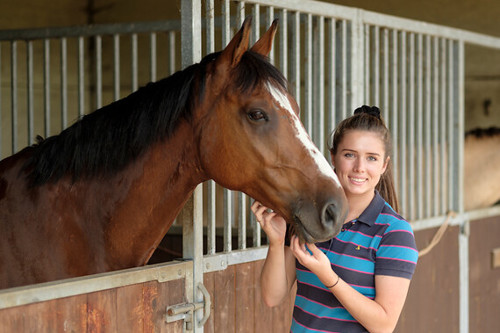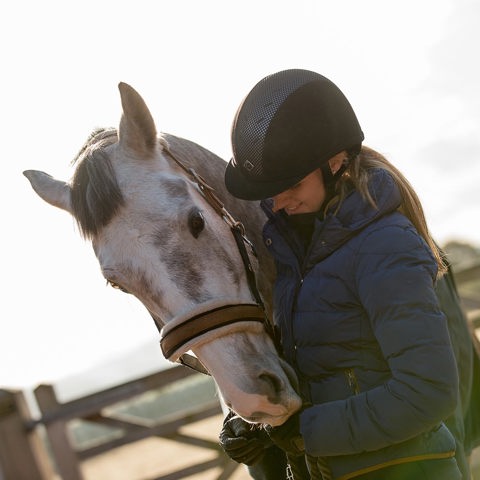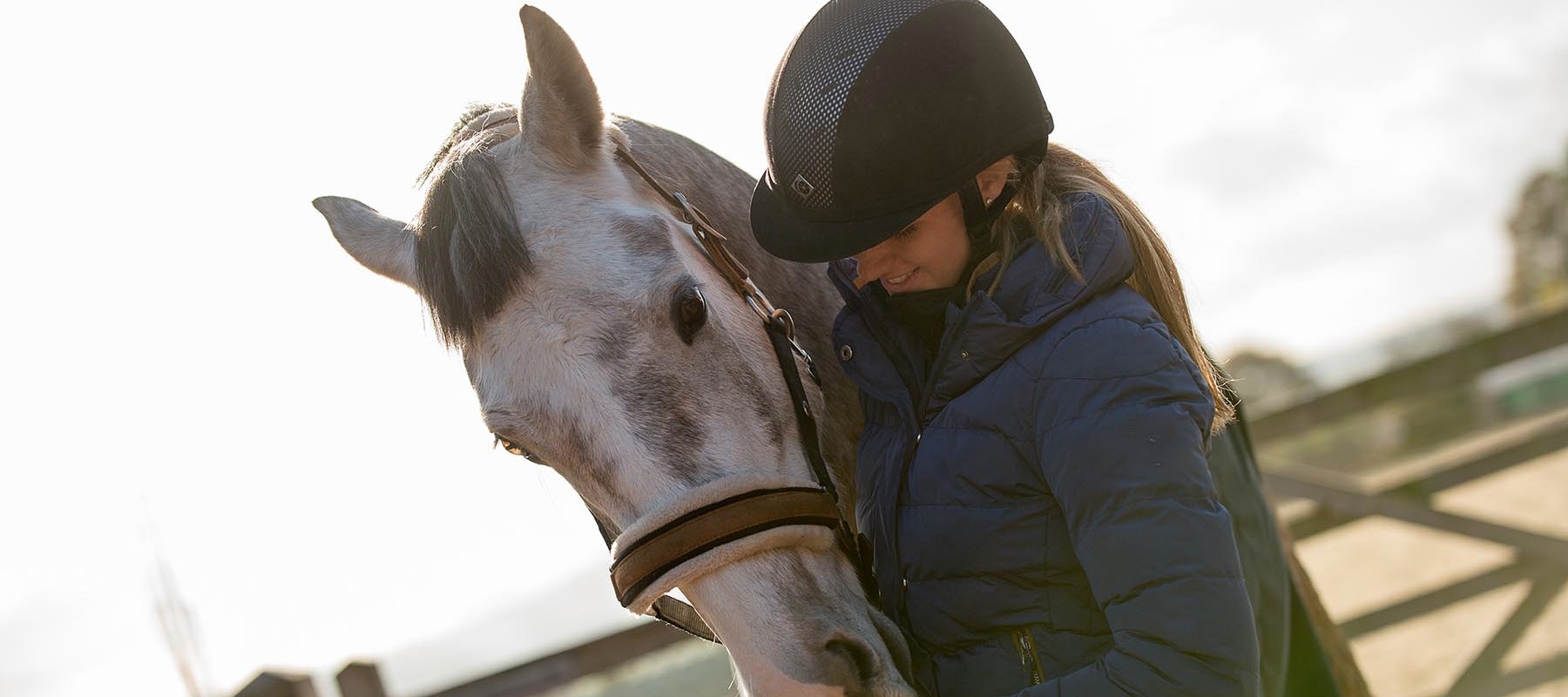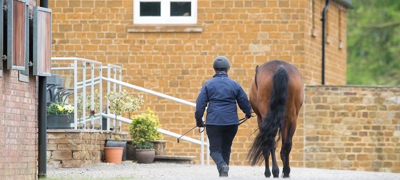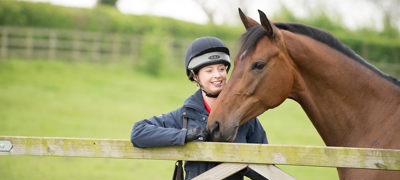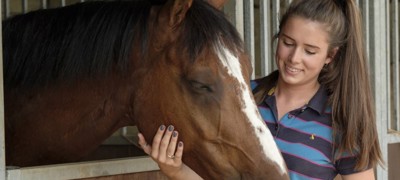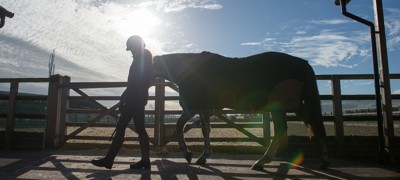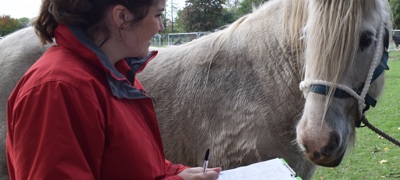The prospect of viewing and buying your own horse can be very exciting, however to get the most positive outcome for you, the seller and the horse it’s important to make careful considerations and understand the process fully before you buy.
Finances
It’s important to sit down and work out in detail whether you’ll be able to afford the cost of keeping a horse. Although savings may be able to cover the initial purchase cost, outgoings each month on routine care can soon add up.
Finding the right horse
Carefully consider what your ideal horse would be and the activities you plan to do together. Think about:
- Height and age range
- Breed
- Sex
- Competition ability/history
- Experience of horse
- Budget
- How far are you prepared to travel to view?
Where should you start looking?
chevron-down
chevron-up
- Many horses are advertised online or in publications, but good horses often sell via ‘word of mouth’ before they are advertised, so describe the sort of horse you’re looking to your coach and horsey contacts.
- Consider rehoming a horse through an equine charity. Search via the National Equine Welfare Council for a rehoming centre local to you.
- There are many good dealers, and for some buyers, viewing a variety of horses on one yard is more convenient than travelling to several different yards. However, as in any profession, there are disreputable traders, so research the reputation of any dealer before visiting
- The BHS doesn’t recommend purchasing from a sale or auction for the first-time horse owner, as it’s not possible to see the horse in their home environment and it’s unlikely that you would be able to ride them before purchase.
Owner’s/rider’s capability and experience
chevron-down
chevron-up
It’s vital to be realistic about your own ability, knowledge and experience. Buying a horse that doesn’t match your capabilities is unlikely to be an enjoyable partnership and can end in heartache, as well as being potentially dangerous.
When you view a horse, it’s strongly advised you ask an experienced person who understands your riding capability and requirements to accompany you. Many BHS Accredited Professional Coaches will provide this service and give their professional view on the horses' suitability for you in order to help you make an informed decision. However, remember that your coach cannot advise you whether you should purchase the horse or give their opinion on the horse's value, as this is outside of their professional scope.
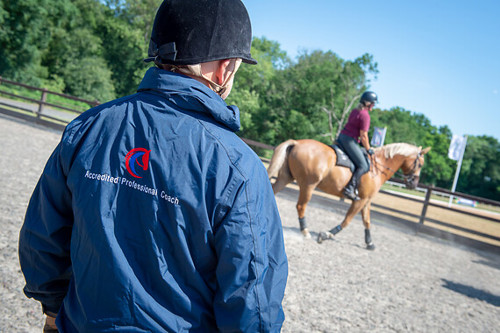
Viewing a horse
Reputable sellers will want prospective buyers to know as much as possible about the horse to make sure they go to the right home. You shouldn’t be asked to pay a deposit to view a horse as this isn’t normal practice. Make sure you view the horse more than once, and complete activities that you plan to do, such as hacking out alone or jumping.
Learn more about what questions to ask and arranging a viewing.
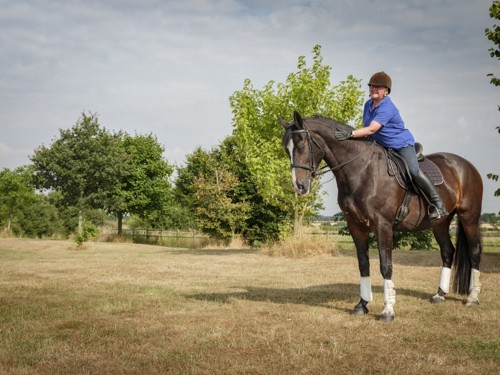
Trial Period
Consider asking for a trial period, as this can help you be sure that this is the right horse for you and allows the seller to know that they’re selling to the right person. All aspects of any trial period must be covered in writing, including elements such as who covers emergency vet care or insurance costs.
If you are a BHS Gold Member, you can use the BHS Sale Agreement service to assist you with drawing up a sales contract that includes a trail period.
Purchasing a horse
Never buy on impulse. However perfect the horse may appear, buying a horse unseen and without a thorough viewing is never advisable. Don’t make an instant decision: take the time to discuss your thoughts with your coach or a knowledgeable friend and consider arranging a second viewing. When you’re certain that you’ve found the horse you want to buy, the BHS strongly recommends that you arrange a pre-purchase veterinary examination (vetting) before proceeding.
Buyer beware
As with any purchase, be aware that there are always a minority of people who will attempt to take advantage of unwary buyers. Always be mindful of potential scams, and don’t part with any money until you’re absolutely satisfied about all elements of the sale.
Details to agree beforehand with your seller include:
- Clear arrangements regarding a deposit, particularly in what circumstances it should be returned
- Clear arrangements regarding any trial period and associated responsibility for costs and insurance
- A sale contract stating purchase terms and conditions and a signed receipt
- Public Liability insurance cover from date of purchase.
What are my rights if I’ve been mis-sold a horse?
chevron-down
chevron-up
Dealer
If you’ve purchased your horse from a registered dealer, and believe the horse has been mis-sold, you can report them to Trading Standards. It’s strongly recommended to seek legal advice to assist with this matter. If you’re a BHS Gold member, you’ll be able to access the free legal helpline.
Private Seller
If you believe you’ve been mis-sold a horse from a private seller, this is classed as a civil matter and professional legal advice needs to be sought. Unfortunately, the BHS cannot directly help to resolve civil matters. However, if you’re a BHS Gold member you can get excellent free advice by calling the legal helpline.
Passports
It’s a legal requirement for horses in the UK to be passported and microchipped. Don’t purchase a horse without a passport, and check that the passport matches the horse you’re purchasing. Don’t accept any excuses for not receiving the horse’s passport at the time of sale! This is a common cause of complaint from new owners, and it can be problematic and difficult to resolve. It’s a legal requirement to have the passport for transporting the horse to the new yard.
It’s also a legal requirement for a new owner to update the ownership details on the passport within 30 days of purchasing the horse. Failure to do so is an offence. Contact the relevant Passporting Issuing Organisation to update owner details.
Finding a suitable place to keep your horse
There are lots of different types of livery yards available and ultimately you need to make sure that it’s suitable for you and your new horse while being in your budget. Make sure you research the yard’s facilities, turnout, daily routines and any extra services the yard may provide and any additional costs for these.
Renting a field could be an option if this meets the needs of your horse and has the facilities you want, for example local off-road hacking. It’s important that your new horse has herd companions and that the land is suitable with good fencing and access to water and shelter.
Using a BHS approved centre will give you the reassurance that your horse is in a safe environment with experienced people.
Your new arrival
Veterinary insurance
chevron-down
chevron-up
Depending on the severity of the illness or injury, unexpected veterinary bills can go into the hundreds or thousands of pounds. Taking out a veterinary insurance policy is a consideration to provide financial reassurance.
Finding the correct policy and level of cover to suit you can feel daunting, but it’s important to do your research and shop around to make sure you find the right policy cover for you and your horse. Some insurance providers request a copy of the pre-purchase veterinary certificate. In addition, if there’s pre-existing health conditions or previous injuries, these areas may be excluded from the policy cover. Check the date that the new policy will begin from when you have purchased your new horse. Specific insurance policies are also available for veteran horses.
Public liability insurance
chevron-down
chevron-up
Anyone who owns, rides, or looks after a horse is strongly advised to have public liability insurance cover, because they may be legally liable to pay compensation for any damage or injury caused by their horse. Personal injury compensation claims can sometimes run into millions, meaning that anyone who is uninsured risks losing their home and any other assets. The BHS Gold membership package provides many benefits including public liability insurance up to £30 million (terms, conditions and territorial limits apply).
Isolation of new arrivals
chevron-down
chevron-up
Isolating your new horse on arrival at the yard is an important disease prevention measure. Discuss with the yard manager/owner, the quarantine procedures and if a Strangles test needs to be completed before your horse arrives at the new yard.
Getting to know your new horse
chevron-down
chevron-up
Your horse may take a while to settle into their new routine with you, their environment and field companions. It’s a good idea to spend some extra time getting to know your new horse and start to build the foundations of a positive partnership together.
